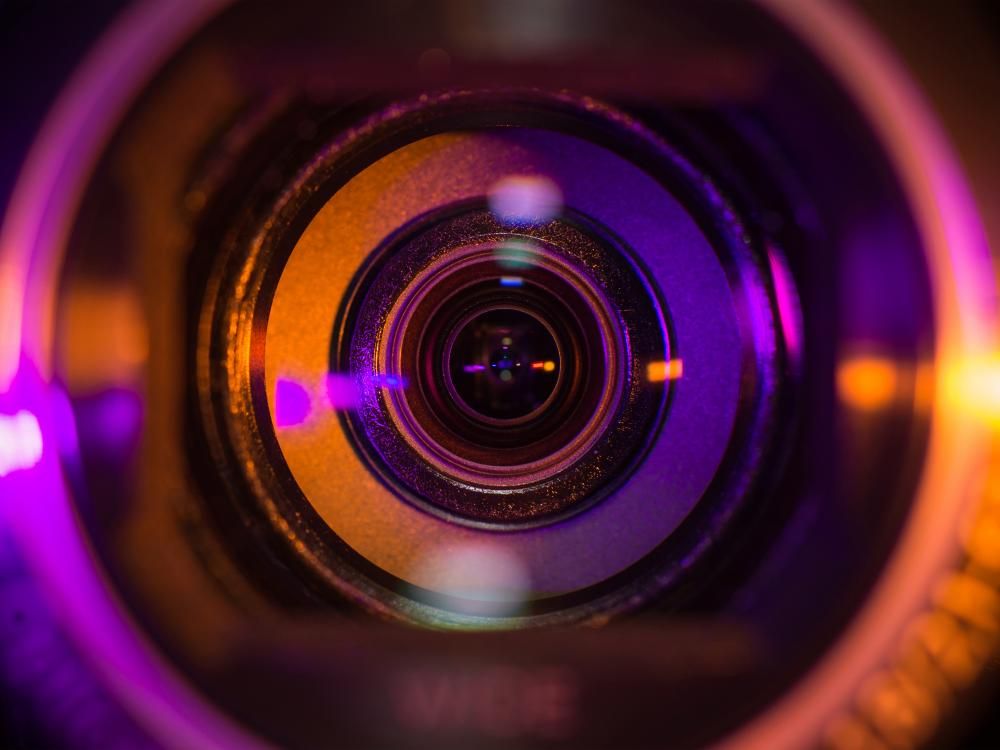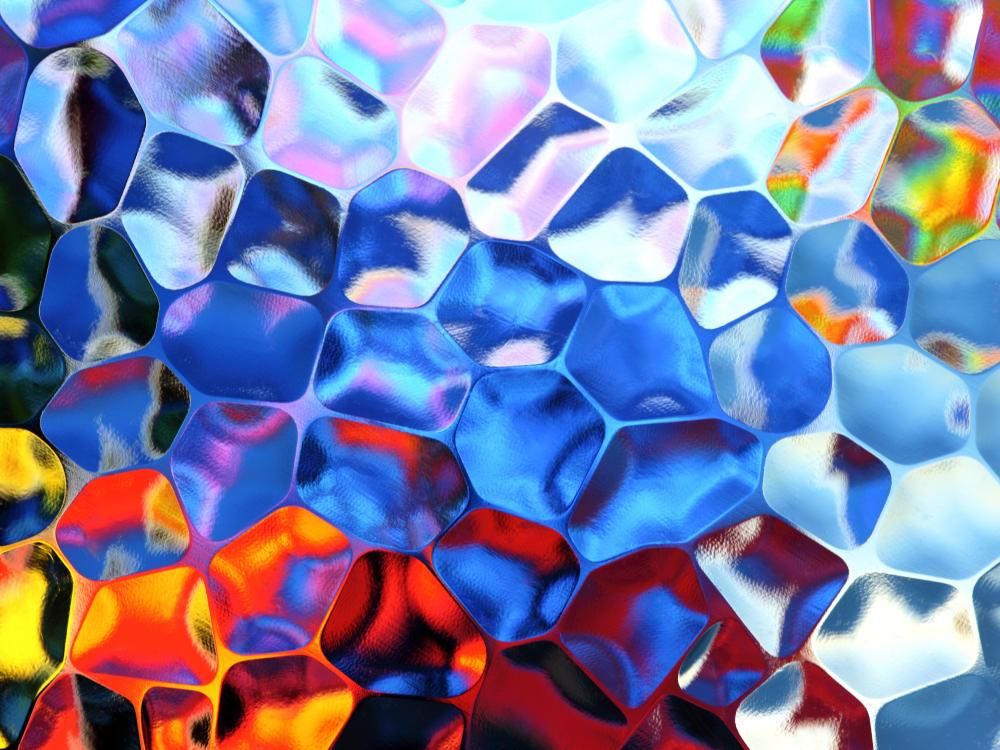
Computer vision services and solutions
- Home
- Computer vision
Computer vision (CV) can capture, process, and interpret visual inputs from multimedia content and real-world environments to derive business-relevant insights for analytical purposes or autonomously trigger proper actions in various operational scenarios.
Backed by its vast expertise in artificial intelligence-related technologies, Itransition designs and implements computer vision solutions to enhance decision-making and optimize corporate workflows.
Table of contents
Why Itransition
5+ years of experience in delivering computer vision solutions
25+ years in IT consulting and software development
Long-standing partnerships with Microsoft and AWS
An extensive portfolio of successful AI-related projects
Strict compliance with HIPAA, GDPR, and other standards and regulations
Awards and recognitions from Deloitte, Gartner, Forrester, and Clutch
Computer vision solutions we deliver
Itransition’s team of developers can build tailored computer vision applications to help your business perform a wide range of tasks across multiple corporate functions.

Image segmentation
We develop image segmentation and object detection software to partition visual content into multiple segments and highlight interesting objects via bounding boxes, polylines, or key point annotations, making pictures and videos easier to analyze.
Examples of tasks:
- CT scan segmentation
- Product detection in shoppable videos
- Vehicle and crowd counting
Face recognition
Itransition’s team delivers facial recognition systems designed to identify human faces in digital content and match them with specific persons based on their biometric features for tracking, ID authentication, security, and other purposes.
Examples of tasks:
- Access control to restricted areas
- Face detection for social media tagging
- Identity validation for safer purchases
Image classification
Our experts create computer vision-based tools that rely on pattern recognition to identify and label objects in an image or video, recognize the subject portrayed, and categorize the content into an organized knowledge base.
Examples of tasks:
- Online content moderation
- In-app photo organization
- Search engines
Optical character recognition
Our computer vision engineers provide organizations with OCR software to convert images of typed or handwritten text into a machine-readable format to foster digitization at the workplace and speed up a broad range of clerical tasks.
Examples of tasks:
- Financial data entry
- Package label tracking
- Patient record processing
Image and video analytics
We build computer vision solutions enhanced with analytics capabilities and deep level of context understanding to interpret and derive meaningful insights from visual content in real time, enabling companies to quickly react to incoming data.
Examples of tasks:
- Sentiment analysis (facial)
- Medical image analysis
- Manufacturing anomaly detection
- Smart home security as part of IoT home automation system
Have a computer vision project in mind?
Client spotlight

+8%
visitor-to-buyer conversion
Fashion retail BI platform
Itransition’s team equipped an ecommerce-oriented BI solution for customer behavior analysis with computer vision-based capabilities. The platform detects key attributes in product images, searches for similar items, and customizes user experience with tailored recommendations.

2.5x
higher productivity
Shoppable video platform
Itransition revamped an ecommerce platform with ML-powered CV features that can spot merchandise in online videos, highlight them with image overlays, and enable users to reach the related product pages via embedded links, creating an interactive and non-intrusive shopping experience.

98%
detection accuracy
Aquatic environment analysis system PoC
Our experts created the PoC of a CNN-powered computer vision solution that processes images acquired through a camera in real time and accurately detects and classifies various types of plankton, helping scientists identify dependencies in the ocean ecosystem.

+8%
visitor-to-buyer conversion
Fashion retail BI platform
Itransition’s team equipped an ecommerce-oriented BI solution for customer behavior analysis with computer vision-based capabilities. The platform detects key attributes in product images, searches for similar items, and customizes user experience with tailored recommendations.

2.5x
higher productivity
Shoppable video platform
Itransition revamped an ecommerce platform with ML-powered CV features that can spot merchandise in online videos, highlight them with image overlays, and enable users to reach the related product pages via embedded links, creating an interactive and non-intrusive shopping experience.

98%
detection accuracy
Aquatic environment analysis system PoC
Our experts created the PoC of a CNN-powered computer vision solution that processes images acquired through a camera in real time and accurately detects and classifies various types of plankton, helping scientists identify dependencies in the ocean ecosystem.

+8%
visitor-to-buyer conversion
Fashion retail BI platform
Itransition’s team equipped an ecommerce-oriented BI solution for customer behavior analysis with computer vision-based capabilities. The platform detects key attributes in product images, searches for similar items, and customizes user experience with tailored recommendations.

2.5x
higher productivity
Shoppable video platform
Itransition revamped an ecommerce platform with ML-powered CV features that can spot merchandise in online videos, highlight them with image overlays, and enable users to reach the related product pages via embedded links, creating an interactive and non-intrusive shopping experience.

98%
detection accuracy
Aquatic environment analysis system PoC
Our experts created the PoC of a CNN-powered computer vision solution that processes images acquired through a camera in real time and accurately detects and classifies various types of plankton, helping scientists identify dependencies in the ocean ecosystem.
Computer vision use cases across industries
Itransition’s team delivers industry-specific computer vision solutions that effectively address the management and operational challenges of your business scenario.
- Augment industrial robots with visual perception to automate assembly tasks and speed up production
- Detect manufacturing defects via anomaly detection to ensure better product quality
- Identify anomalous industrial asset operations via infrared thermography to enable predictive maintenance and minimize machine downtime
- Monitor employees' conditions and workplaces to detect the signs of fatigue or environmental risks

- Optimize staff allocation based on customer count and queue analysis to improve buyers’ experience
- Provide customers with barcode scanning smartphone apps to enable self-checkout and avoid queues
- Discover customers’ ‘hot spots’ on the shopping floor to optimize product layout accordingly
- Update inventory levels with barcode scanning and camera-based checkout to prevent stockouts

Healthcare
- Enhance radiology with AI to increase diagnostics accuracy and improve treatment outcomes
- Collect huge sets of clinical data from medical imaging to foster biomedical and pharmacological research
- Detect and highlight clinical targets or sensitive areas, such as lesions, to facilitate robot-assisted surgery procedures

Agriculture
- Detect weeds and crop diseases to spread herbicides and pesticides only in selected areas
- Monitor weather and soil conditions via cameras and satellite imagery to predict crop yields
- Analyze animals’ health conditions and feeding habits to improve livestock management

Sports
- Track athletes' movements to detect offsides, extract scoring data, and facilitate judges' decisions
- Identify game highlights to broadcast for a more engaging fan experience
- Analyze player speed, shot accuracy, and ball trajectories for accurate, bias-free athlete assessment

Education
- Create training simulations via CV, AR, and VR to deliver an immersive and gamified learning experience
- Deploy CV-based test grading software to reduce teachers’ workload
- Equip exam proctoring software with video monitoring features to spot suspicious student behavior
- Implement OCR and sign language-text conversion software to support blind or deaf students and enable more inclusive education

Automotive
- Equip vehicles with ADAS to ensure better control, minimize the risk of collision, and facilitate parking
- Implement driver monitoring systems to spot signs of drowsiness or distraction and thus improve safety
- Scan existing vehicle components and generate multiple design alternatives to facilitate car sketching and prototyping
- Scan manufactured vehicles with CV-powered cameras to spot surface defects and speed up quality control

Logistics
- Implement barcode scanning and camera-based asset tracking to ensure supply chain traceability
- Monitor vehicles’ condition via automated visual inspection to facilitate maintenance and avoid service interruptions
- Make sure products are properly packaged, palleted, and labeled to streamline warehouse management

Public safety
- Identify intruders or suspicious behavioral patterns using cameras and drones to protect public and private assets
- Recognize vehicle registration plates to identify drivers violating road rules
- Implement moderation and filtering systems to remove harmful visual content from social media

Our computer vision services
Itransition provides a comprehensive range of consulting and development services to build a computer vision solution tailored to your need, streamline its adoption across your organization, and help you overcome the most common implementation challenges.
Consulting
- CV use case identification
- Development process planning
- MVP conceptualization
- Data mapping and quality audit
- Project budgeting and ROI analysis
- Risk management strategy definition
- Existing solution assessment
- Software architecture design
- Ongoing user training and support
- Project setup advisory
- Tech stack selection
Development
- ETL pipeline configuration
- System integrations and APIs setup
- Data pre-processing (cleansing, annotation, and transformation)
- Creation of UX/UI and data visualization features
- Elaboration of cybersecurity and data protection measures
- Deployment to the production environment
- Tech stack selection
- End-to-end testing
- CV model training
- Post-launch updates and model fine-tuning
Computer vision delivery pipeline
The scope of Itransition's service offering encompasses steps required to conceptualize, build, implement, and fine-tune a computer vision solution matching your corporate goals and requirements.
1
Business analysis
We start by identifying your corporate needs and evaluating your current tech ecosystem. Then, we help you decide whether to opt for computer vision or more conventional technologies in specific use cases. We also define the solution’s functional and non-functional requirements and set up a roadmap detailing the project's scope, objectives, deliverables, and timeframes.
2
Initial data analysis
We carry out an exploratory analysis to map available image data sources and evaluate their quality and reliability. These can include corporate data assets complemented with public databases and other external sources.
3
Product design
We select a suitable tech stack and prepare a specification detailing the CV solution’s architecture, modules and features, interface wireframes, and integrations with other software and data collection devices, such as IoT sensors or cameras. We can also deliver a proof of concept to ensure the project’s feasibility and financial viability while highlighting potential adoption challenges.
4
Building the CV solution
We perform all necessary data pre-processing tasks, including data cleansing, annotation and transformation. Then, we define the solution’s evaluation criteria and rely on various machine learning algorithms (including deep learning) to train one or more models with cleaned data sets, making sure to achieve the desired output.
5
Model integration and deployment
We embed the trained model into the software architecture to fuel its computer vision-based features with the model’s output. Then, we set up all necessary API- or ESB-based integrations and finally deploy the solution in the target environment, be it on-premise or cloud-based.
6
Support
We offer user training and support, maintenance, and regular updates. Our team can also release additional features and, with the customer’s approval, fine-tune the CV model with new training data to adjust its output and improve accuracy.
Computer vision tools and technologies
Itransition’s team can apply an extensive range of programming languages, libraries, frameworks, and AI algorithms, along with third-party tools and cloud-based services, to build a suitable tech stack for your computer vision project.
Libraries & frameworks
- TensorFlow Keras PyTorch Scikit-Learn Scikit-Image
- Theano MXNet NumPy NLTK Pandas
- SciPy TorchVision Caffe MLlib SparkML
- Sonnet DarkNet Catboost XGBoost LightGBM
- Annoy Faiss NvidiaDigits OpenCV
- Pillow Albumentations Transformers Microsoft Cognitive Toolkit
Network architectures
- Neural radiance field (NeRF) Convolutional neural network (CNN) Recurrent neural network (RNN) Generative adversarial network (GAN)
- Siamese neural network (SNN) Transformers Autoencoders
Task types
- Clustering algorithms Regression algorithms
- Classification algorithms Detection algorithms
Task types and examples of architectures
Object detection
- YOLO
- DETR
- RetinaNet
Object classification
- ResNet
- VGG
- MobileNet
- EfficientNet
- Swin Transformer
Semantic segmentation
- U-Net
- Deeplabv3
- SegFormer
Instance segmentation
- YOLO
- Mask R-CNN
Pose estimation
- AlphaPose
- OpenPose
- Pose2Seg
- YOLO
Face recognition
- RetinaFace
- DeepFace
OCR (Image2text)
- Tesseract
- EasyOCR
Clusterizaion
- DBSCAN
- Umap
- KMeans
- SCAN
AI services
- Amazon SageMaker Amazon Recognition Azure Machine Learning
- AWS Deep Learning AMIs Azure Cognitive Services VertexAI
- DataRobot Cloud Machine Learning Engine Cloud Vision API
- Google Cloud AutoML NVIDIA CUDA
Data integration tools
- Azure Data Factory Azure Event Grid Azure Databricks Microsoft SQL Server Integration Services AWS Glue AWS Data Exchange
- AWS Kinesis Data Firehose Amazon Kinesis Data Analytics Apache Nifi Talend Informatica PowerCenter
- Dell Boomi MuleSoft Anypoint Platform IBM InfoSphere Information Server Oracle Data Integrator SnapLogic
- Syncsort Striim Pentaho Fivetran Matillion
Data storage services
- Azure Blob Storage Azure Data Lake Storage Azure SQL Database
- Azure Cosmos DB Microsoft SQL Server Amazon S3
- Amazon Redshift Amazon Aurora Amazon RDS
- Amazon DynamoDB Google Cloud Storage
- IBM Cloud Object Storage SAP HANA
Data analytics platforms
- Azure Analysis Services Azure Stream Analytics
- Microsoft SQL Server Analysis Services Microsoft Power BI
- Grafana Qlik Sense
- Tableau Sisense
- Amazon Athena
Data visualization tools
- Datawrapper Chartist.js
- matplotlib seaborn
- bokeh Plotly
- Altair GeoPy
- Streamlit Gradio
- ggplot Infogram
- Google Charts Fusion Charts
- D3.js Excel
The benefits of computer vision solutions
The implementation of computer vision technology can benefit your business in terms of operational efficiency, decision-making, product and service quality, safety, and customer satisfaction.
Greater productivity
Combined with robotics and other automation technologies, computer vision systems can speed up manufacturing cycles and clerical processes and foster superior labor productivity.
Wider data pool
Along with other AI branches like natural language processing, computer vision enables analysts to harvest data from a wide range of sources, such as medical imaging and satellite imagery.
Enhanced decision-making
CV solutions’ ability to identify relevant features, patterns, and anomalies facilitates the interpretation of trends and scenarios for a more data-driven approach to decision-making.
Cost optimization
CV-based automation systems can help enterprises optimize their resources and operating costs by replacing or assisting their staff in performing a variety of time-consuming tasks and routines.
Improved product quality
Deployed across the assembly line, computer vision systems can fuel anomaly detection software with visual data to spot any defects, ensuring compliance with product quality standards.
Better customer experience
Organizations across industries can leverage CV to power a wide range of customer-centric services, such as shoppable videos and biometric authentication.
Risk mitigation
From ADAS and predictive maintenance to security cameras, CV can be implemented in several solutions to keep your staff, customers, and assets safe while minimizing business risks.
Enhance your business with Itransition’s computer vision systems
FAQ about computer vision
How do I know if I can solve my problem with computer vision?
While computer vision solutions, especially when combined with other AI-based tools, have proven very effective for numerous use cases, their adoption can be more complex, time-consuming, and demanding in terms of pricing than more traditional technologies. During your project’s early assessment phase, our team of consultants will help you assess whether computer vision is worth the investment and is truly the best option to address your business challenges compared to conventional software or process changes.
How accurate is computer vision?
When performing tasks such as object identification or image recognition and classification, as pointed out by SAS, cutting-edge computer vision systems powered by deep learning models and neural networks can achieve close to 99% accuracy.
How much does computer vision software cost?
The total investment to implement a computer vision system can vary widely depending on your goals and business scenario. That said, basic PoC implementation typically starts from $10,000. The range of cost factors you should take into account typically include data quality and model accuracy requirements, tech stack, software architecture, integrations, IT infrastructure, third-party licenses, deployment environment, and maintenance costs. For a more accurate estimate, get in touch with Itransition’s consultants.
What are the limitations of computer vision?
Despite their impressive performance across a variety of use cases, computer vision systems cannot yet achieve 100% accuracy. The data-driven nature of computer vision shared with other AI-related technologies, along with its tendency to make decisions and predictions in an inscrutable way like a black box, can also raise concerns about data security and potential CV model bias. Itransition’s experts can help you mitigate this issue by fuelling algorithms with high-quality data and retraining AI and machine learning models across multiple iterations to fine-tune their output, as recommended by AIOps best practices.

Service
AI services & solutions
Explore our range of AI services, along with key AI use cases, related technologies, and adoption guidelines.

Insights
AI use cases: 3 rules to find the right one for your business
One of the main barriers to AI adoption is identifying the right AI use cases. Find out the best practices to make it less challenging.

Case study
ML PoC for a plant pathology recognition solution
Learn how we developed a PoC for an ML plant pathology recognition solution, helping the customer attract investments and partner with scientific institutes.

Insights
Machine learning use cases: applications, industries & trends
Discover top machine learning fields of application and use cases across industries, along with benefits and up-to-date stats on the latest ML trends.